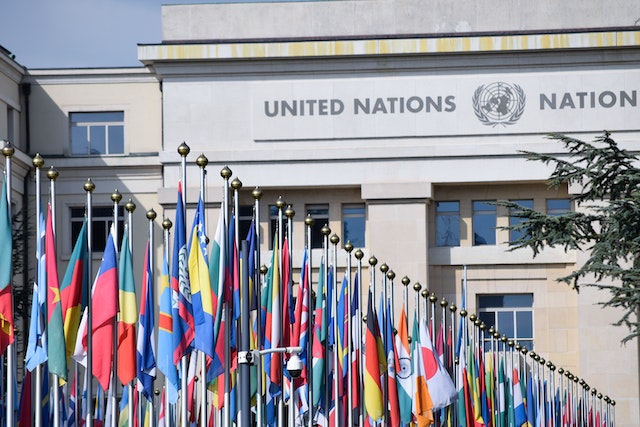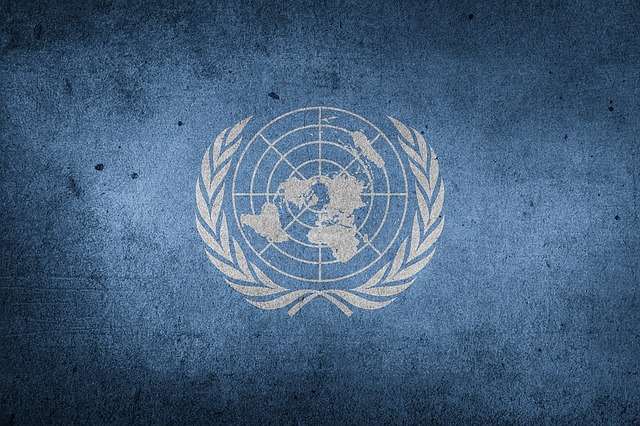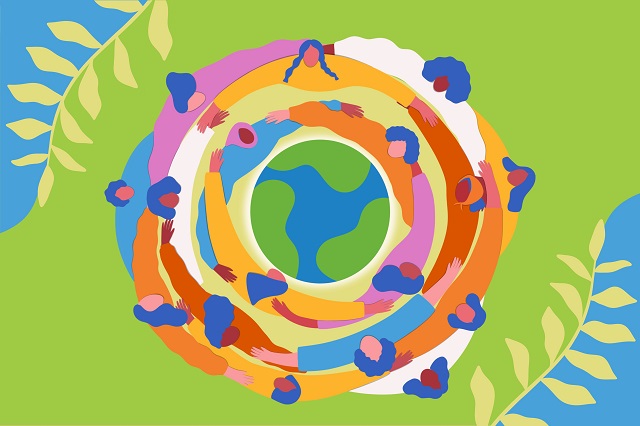Constitutional transformation talks and resources
Wed 08 May 2024
Recent hui, conferences and webinars have focused on constitutional transformation and the link with Te Tiriti. In this news story, we highlight some of these events and the available recordings from the hui.

Constitutional transformation talks and resources
Te Aorerekura identifies that "Violence that impacts whānau is rooted in the marginalisation of tangata whenua and societal changes enforced during the colonisation of Aotearoa." Te Kāhui Tika Tangata | Human Rights Commission, along with tangata whenua, researchers and advocates have repeatedly identified that colonisation, racism and white supremacy continue to have profound impacts on tangata whenua and many other communities in Aotearoa.
The authors of Puao-te-ata-tu (1988) made clear that colonisation and state systems are a source of violence for Māori, and that the solution for ending violence and promoting toiora whānau must involve redefining the relationship between the Crown and tangata whenua. This has been supported by countless studies and reviews, including Moana Jackson’s He Whaipaanga Hou (1987), Ani Mikaere’s The Balance Destroyed (1995, 2017), the recently published He Waka Eke Noa: Māori cultural frameworks for violence prevention and intervention (2023) and Violence within whānau and mahi tūkino – A litany of sound revisited (2023).
Te Kāhui Tika Tangata | Human Rights Commission's Maranga Mai! report "...explains that to be free of discrimination and to determine their own future, tangata whenua want tino rangatiratanga under Te Tiriti restored, as well as their indigenous rights under the United Nations Declaration on the Rights of Indigenous Peoples (UNDRIP)."
Margaret Mutu (Ngāti Kahu, Te Rarawa, Ngāti Whātua) talks about how the path to self-determination (tino rangatiratanga) for Māori in Aotearoa requires constitutional transformation. She writes:
"The colonisation of this country by the British was illegitimate and illegal, and it’s done huge damage. That has to be fixed. It’s no good trying to just tweak things at the edges because there is a fundamental underlying problem, which is our constitutional arrangements.
The first thing we need to do is for everyone to take part in a long and meaningful conversation about what is needed to ensure that balance is restored in the country. Not just lawyers or experts, but everyone.
Balance would mean an environment where Māori are fully recognised and respected as mana whenua and the original peoples of this country; where tikanga, mātauranga, He Whakaputanga and Te Tiriti are all a natural part of the agreed order of this country and nobody thinks that it is odd or somehow wrong.
It would mean that hapū and iwi, our fundamental social constructs within the Māori world, can exercise their own mana and make their own decisions about their own lives and their own resources.
All people would have a respected constitutional place in our country, and all people would know what that respected place is in this country. We would have constitutional arrangements based on tikanga, He Whakaputanga, Te Tiriti, and an agreed set of values for good, just, and participatory government for and by all peoples that benefits everyone."
The 7th report of the Family Violence Death Review Committee (2022) outlines how efforts to uphold Te Tiriti o Waitangi can contribute to wellbeing and safety for everyone, writing that "By upholding the rights and basic dignities of everyone in Aotearoa, we can take collective action to address the foundation of family violence."
The recommendations of Puao-te-ata-tu and the many other reports and tangata whenua voices continue to inform kaimahi working towards better futures, and can be seen in many of the examples below.
Kōrero with Margaret Mutu
Te Wāhi Wāhine o Tāmaki Makaurau | the Auckland Women's Centre hosted a Kōrero with Margaret Mutu, interviewed by broadcaster Moana Maniapoto (Ngāti Tūwharetoa, Tūhourangi, Ngāti Pikiao). Margaret's kōrero covered a wide range of issues including:
- Rangatiratanga
- He Whakaputanga o te Rangatiratanga o Nu Tirene: the Declaration of Independence of the United Tribes of New Zealand
- Te Tiriti o Waitangi and the ACT party's treaty principles bill
- Waitangi Tribunal, treaty settlements and addressing inequities
- Constitutional transformation and visions for the future
- Matike Mai.
A summary of Margaret's talk is also available.
Professor Margaret Mutu was the Working Group Chair of Matike Mai Aotearoa, and Moana Jackson (Ngāti Kahungunu, Ngāti Porou) was the Convenor. Matike Mai Aotearoa, the Independent Working Group on Constitutional Transformation, was first promoted at a meeting of the Iwi Chairs Forum in 2010. The Chairperson and Convenor facilitated 252 hui between 2012 and 2015. Findings were published in He whakaaro here whakaumu mō Aotearoa: the report of Matike Mai Aotearoa - the independent working group on constitutional transformation (2016). This work and kōrero has continued through the Māori Constitutional Convention 2021, Constitutional Kōrero 2022, the Power in Our Truth Conference 2023, the recent Designing Our Constitution 2024 and many other forums.
To learn more and get involved, see the new Matike Mai Aotearoa website launched in February 2024 to support understanding and dialogue about constitutional transformation in Aotearoa. Also see:
- Margaret Mutu: Why we need constitutional transformation (2022) by Margaret Mutu in E-Tangata
- Moana Jackson: ‘I’m absolutely sure transformation is coming’ (2022) by Moana Jackson in E-Tangata
- Portrait of a Quiet Revolutionary (2022), documentary about Moana Jackson
- The Treaty Claims Settlement Process in New Zealand and Its Impact on Māori (2019) by Margaret Mutu.
Speech from UN Special Rapporteur on the Rights of Indigenous Peoples
The UN Special Rapporteur on the Rights of Indigenous Peoples visited Aotearoa in April 2024. He spoke at the Designing Our Constitution 2024 conference about how constitutions can be instrumental in protecting Indigenous Peoples' rights and cultures. You can watch and read his speech "Constitutional reform and the importance of harmonization with international treaties: cases of successes and reforms on Indigenous Peoples" (2024).
Recordings from Designing Our Constitution 2024 conference
The Conference was hosted by the University of Auckland’s Centre for Indigenous Peoples and the Law, Te Kāhui Tika Tangata Human Rights Commission and National Iwi Chairs Forum. Learn more about the conference and how it paves the way for conversations about inclusive, te Tiriti-based constitution from Te Kāhui Tika Tangata | Human Rights Commission. Recordings from the Designing Our Constitution 2024 conference are available online.
Recordings from Te Tiriti Based Futures & Anti Racism
Te Tiriti-based futures + Anti-racism is an innovative (inter)national, online and offline, Te Tiriti-based, anti-racism and decolonisation event in Aotearoa. The event has taken place in 2020, 2022 and recently in March 2024. The event hosts a range of speakers covering institutional racism and anti-racism, decolonisation, building Te Tiriti-based futures and transforming our constitution. You can watch recordings from the talks online. Talks from 2024 included He Whakaputanga o Te Rangatiratanga o Nū Tīreni webinar, Matike Mai – Planning for constitutional transformation webinar, Indigenous sexuality and colonial Ideologies webinar, He Waka Eke Noa: The Role of the State in perpetuating Violence on Māori webinar and much more.
Related news
The National Iwi Chairs Forum withdrew from the working group on the National Action Plan Against Racism in April 2024. In announcing their withdrawl, Tangata Whenua caucus member Tina Ngata said:
"Our government has signalled changes to the plan, including a reduced focus on institutional racism and colonial racism against Māori, which would render the plan pointless as all instances of personal racism result from the institutional racism of our society."
Tina Ngata discussed in detail why the National Iwi Chairs Forum walked away from the National Action Plan Against Racism in an article for E-Tangata. See related media below for more information including response from Justice Minister Paul Goldsmith. See the Ministry of Justice for more information about the work to develop a National Action Plan Against Racism.
The Disinformation Project published research in October 2023 highlighting that disinformation is contributing to a rise in anti-Māori racism and exposure to white supremacist beliefs in Aotearoa New Zealand. Listen to an interview about the research with Kate Hannah, Disinformation Project Director.
Te Kāhui Tika Tangata | Human Rights Commission published 2 reports in February 2023:
- Ki te whaiao, ki te ao Mārama, a community engagement report for developing a National Action Plan Against Racism
- Maranga Mai!, a report into the dynamics and impacts of colonisation, racism and white supremacy upon tangata whenua.
The United Nations Human Rights Council is currently conducting Aotearoa New Zealand's 4th Universal Periodic Review of human rights. The Draft Outcome Report was published on 3 May 2024. A final country report is due on 17 May 2024.
Related media
World shines a light on NZ’s human rights breaches, Newsroom, 07.05.2024
Ngāhuia Murphy: The mana and mātauranga of wāhine Māori, E-Tangata, 05.05.2024
Justice Minister updates UN on law & order plan, Beehive media release, 30.04.2024
Why did the Iwi Chairs Forum walk out on the national anti-racism plan?, NZ Herald, 08.04.2024
Claire Charters: Let’s imagine a new constitution, E-Tangata, 07.04.2024
Designing a constitution for Aotearoa, Te Ao Māori News, 04.04.2024
Māori power probed in constitution hui, Waatea News, 03.04.2024
Image: Gerd Altmann from Pixabay






